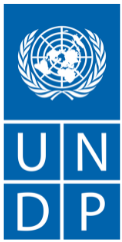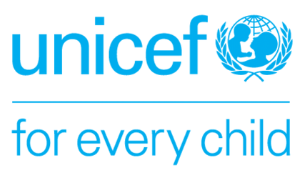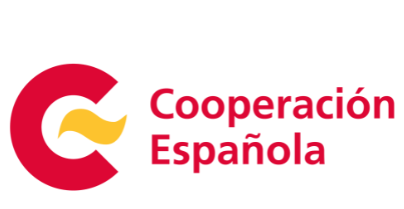Event recordings:
- The SDG Stimulus: Scaling up long-term affordable financing for the SDGs
- Accelerating SDG Progress through National Financing Strategies and INFFs
“Our international financial system at the moment is simply not responding either on a scale or in a qualitative shift of attention that is needed to address issues... this is not a moment for incrementalism.” called Achim Steiner, Administrator of UNDP in the SDG Stimulus High Impact Initiative (HII) session.
The 17 Sustainable Development Goals (SDGs), adopted by United Nations Member States in 2015, present a bold and ambitious agenda to end poverty, protect our planet, and ensure prosperity for all by 2030. However, at the midpoint of the SDG journey, we find ourselves seriously off track.
There is growing recognition that financial challenges are a primary reason for weak SDG progress, and for one-third of the SDG targets, even regression. Many developing countries lack the financial means to respond to the series of global shocks, nor access to affordable financing to invest in recovery.
Against this backdrop, 12 High Impact Initiatives (HIIs) were identified to urgently address this setback. During the SDG Action Weekend, the main session “The SDG Stimulus: Scaling up long-term affordable financing for the SDGs” was held to discuss the implementation of the SDG Stimulus, one of the 12 Initiatives.
Whilst reforms to the international financial system are underway, countries are pioneering Integrated National Financing Frameworks (INFFs) to strengthen financing for national sustainable development priorities. INFFs featured prominently in the SDG Stimulus HII session and side event “Accelerating SDG Progress through National Financing Strategies and INFFs”. The side event provided a platform to hear from countries, and other actors, as they use the INFF approach at the national level to accelerate progress in the second half of the 2030 Agenda timeline. The side event was jointly hosted by the Government of Nigeria, the Government of Indonesia, the INFF Facility, UNDP, UNDESA, UNICEF, and the International Budget Partnership (IBP).
5 takeaways have been summarized below.
1. Country-led financing strategies will be key to delivering the SDG Stimulus
The SDG Stimulus aims to 1) tackle the high cost of the debt and rising risk of debt distress, 2) massively scale up the affordable long-term financing for development and 3) expand contingency financing to countries in need. The SDG Stimulus calls for at least five hundred billion dollars per year to close the great finance divide.
“The SDG Stimulus highlights the need for national ownership and assigns a prominent role to the INFFs for operationalising the Stimulus at the national level,” said Li Junhua, Under Secretary General of UNDESA, in his opening remarks of the side event.
Countries are using the INFF approach to incorporate financing in national planning and hardwire the SDGs in all financing policy choices. Through INFFs, countries can mobilize and align additional resources, enhance the coherence across different financing policies, better manage risk in an increasingly complex financing landscape and make SDG financing more predictable.
Lao PDR has adopted the INFF approach in the past two years and developed the first-ever financing strategy for the National Development Plan 2021-2025, which was endorsed by the Prime Minister in June this year. H.E. Phonevanh Outhavong, Deputy Minister of Planning and Investment of Lao PDR shared in her statement during the SDG Stimulus HII session, “The financing strategy enables us to identify concrete steps to strengthen our system and processes regarding resource mobilization and aligning these resources with our development priorities.”
Remarks by H.E. Adejoke Orelope-Adefulire, Special Adviser to the President of Nigeria on SDGs from the side event also echoed SDG Stimulus’ vision, “Nigeria will continue to prioritize key initiatives and reforms using INFF Roadmap that will mobilize public and private financing from both domestic and international domains to support national sustainable development priorities.”
2. Effective and inclusive government spending is at the heart of financing strategies that drive sustainable impact
“INFFs are instruments to prioritize public development expenditures, to make sure that we improve priorities across social sectors, across the environment, and to do that in an inclusive way… we must also have a relentless focus on what we achieve through that spending - equity, transparency, inclusion, effectiveness, efficiency on the ground for who we deliver to, and when.” shared Kitty van der Heijden, Deputy Executive Director of Partnerships of UNICEF in her opening remarks of the side event.
Indonesia shared insights from its midterm analysis on how to free up fiscal space for social spending and human capital investment. Nigeria is exploring how national and subnational budget allocations can be more aligned with the SDGs, including a focus on the environment. "Social expenditure is key - for example, there's an ongoing review of how we mine, being mindful of the environment and also bringing the mining sector on board with these reforms", shared by H.E. Tijjani Muhammad-Bande, Permanent Representative of Nigeria to the United Nations in the side event.
3. Blended and innovative finance mechanisms are used to engage private investors with the SDGs
“We're using SDG bonds across health, education and ICT sectors. These bonds help to complete basic vaccination for 10 million babies targeted to provinces with poverty rates above the national average, provide scholarships for 11.4 million elementary school students and provide internet access for 2,146 borderline areas.” shared Raden Siliwanti, Director for Multilateral Funding, Ministry of National Development Planning Indonesia in the side event.
Indonesia has been a pioneer of the INFF approach, focusing on diversifying its financing strategies and harnessing blended and innovative finance mechanisms, such as thematic bonds. Indonesia was the first to issue a sovereign green sukuk and a listed sovereign blue bond. The country has raised over USD 8 billion through sovereign thematic bonds, including USD 7.2 billion from Green Sukuk, USD 1.1 billion from SDG bonds, and USD 150 million from the blue bond. Indonesia also leverages tools like green taxonomy and the SDG Investor Map, a market intelligence tool that highlights where private investment will have the most potential to contribute towards the SDGs.
Development finance institutes (DFIs) are scaling up, too. As Elizabeth Boggs Davidsen, Vice President of the U.S. International Development Finance Corporation (DFC) highlighted in her reflection during the side event, “Our role as a DFI is to act as that bridge to connect countries with the right investors and partners and to assure alignment between investors and SDGs as well as international standards.”
In Ecuador, DFC’s political risk insurance facilitated coastal conservation through blue bonds and debt for nature swaps. A recent $1.6 billion debt swap for nature conservation will direct $300 million for marine preservation in the Galapagos Islands. This was achieved by exchanging distressed international bonds for a new $656 million loan at a reduced interest rate. With additional backing from the Inter-American Development Bank and private reinsurers, Ecuador will save $1.1 billion in debt service, with $300 million earmarked for island conservation.
4. Participation is key to ensuring financing reaches the people and places where it is needed
“Including civil society is not only the right thing to do, it's a good thing to do… Change happens when people demand change, and change is sustained when people are part of that change.” highlighted Ana Patricia Muñoz, Executive Director of the International Budget Partnership (IBP) at the side event.
Meaningful involvement of civil society in the financing strategy design and implementation is needed to ensure inclusion and improve sustainability, accountability, transparency, efficiency and effectiveness. In Indonesia, IBP’s work with the Fisherfolk Union demonstrated that grassroots data collection can help identify important gaps and ensure women's inclusion in financial allocations. In Nigeria, grassroots-led budget advocacy has led to better farming supplies for 100,000 women farmers. In Senegal, the organization’s Tax Equity Initiative involves civil society in tax reform talks and engages informal settlements to improve spending on water and sanitation services.
5. Partnerships are crucial to mobilizing the investments needed to achieve Agenda 2030
When it comes to financing the SDGs, the importance of teamwork and collaboration was highlighted by many partners including the Islamic Development Bank, EU, UNDP and others.
Patrick Rabe, UN Partnerships Team Lead of the European Commission highlighted that INFF “is a tool for transparency with a better view of resources for sustainable development. Policymakers can make better decisions, development finance providers can better tailor their support and civil society can hold us both better to account.” in his concluding remarks in the side event.
Haoliang Xu, Associate Administrator of UNDP also underlined the key ‘3Ps’ of the INFFs: process, participation and partnership in his closing remarks at the side event. “INFF is a process of engaging multi-sector partners that will result in a financing strategy reflecting national priorities”. On behalf of the INFF Facility, a multi-partner initiative brokering INFF technical assistance, guidance and knowledge, the UNDP Associate Administrator extended the invitation to work on this mission together, “We are calling for other partners to join us today.”




.png)







.png)


